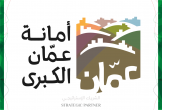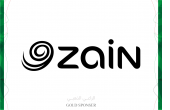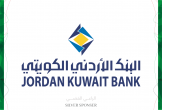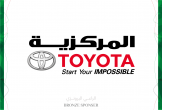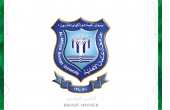Abu Hantash: Jordan wants to project a positive image

Apr 04, 2016
As the FIFA U-17 Women’s World Cup Jordan 2016 draws ever nearer, the host nation’s preparations are intensifying with every passing day.
Anxious to ensure that the first-ever international women’s football tournament to be held in the Middle East passes off without a hitch, the Jordanians are also hopeful that their team can reach the knockout stages in their maiden appearance, despite their lack of big-game experience.
In contrast to many other sides, Jordan’s backroom staff is made up solely of coaches born in the country, all boasting the necessary acumen to steer the team through this demanding competition. To get a closer look at the Jordan set-up, FIFA.com spoke to head coach Maher Abu Hantash who, fresh off the training ground, could not hide his joy at the thought of his nation staging such a prestigious event.
“We were very happy when we learned we would be hosting the U-17 Women’s World Cup,” he said. “We want to project a positive image of the kingdom to all participants, be they players, supporters or visitors. Jordan is a pioneer when it comes to women’s football in the Middle East, and we plan to demonstrate our technical and organisational abilities, as well as our limitless love for the game.”
Knuckling down
Abu Hantash has played a key role in the emergence and development of women’s football in Jordan over the past 11 years, initially taking the helm of the senior women’s XI, which he guided to several regional titles as well as during continental and Olympic qualifying campaigns.
After having worked on developing women’s football in Bahrain for a period, he returned to Jordan to take charge of the young side that will represent the Kingdom at the U-17 World Cup. He wasted no time in getting down to work.
“We started the first stage of our preparation in June 2015, during which we held several training camps in Germany and in Uzbekistan,” he explained. “We played six matches, which helped us to gain experience. Following on from the AFC U-16 Women’s Championship, our girls’ adventure is now only just beginning.”
He continued: “The final stage of our preparatory programme runs from early 2016 up to the start of the tournament. We’re going to make sure we vary things a bit, organising get-togethers in Jordan, introducing our players to different styles, having them play in four-team tournaments, running camps abroad and holding intensive training sessions.
“We’ve started playing against Egypt and we’re waiting to hear from other countries. The goal is to improve our technical and physical preparation rather than taking a solely results-based approach.”
Leap forward
Women’s football has travelled a long road in Jordan since its humble beginnings in 2005, and there is no doubt that the 2016 U-17 Women’s World Cup will enable it to make even further progress.
“This tournament means a lot to us, and I’m not just referring to the results on the pitch,” said Abu Hantash. “I remember when we started out 11 years ago, when we suggested launching a women’s national team and a domestic league. That was a new thing for our society, and some people found it hard to accept the idea of young women playing football like men.
“We successfully overcame the initial obstacles by selecting highly talented young women and by developing their skills. That enabled us to win the West Asia Women’s Championship, which was the first building block in the solid foundations we have now. The preconceptions surrounding women’s football then quickly changed.
“Without the motivation of the players, the support of their families and the belief of the Jordanian FA, we would have never succeeded. Over the years, pretty much everything has changed: we launched a number of clubs that took part in a well-run and popular women’s league. We now have U-14, U-17 and U-19 teams – the Prince Ali centres recruit promising young players and teach them the basics. It’s a great source of pride to be working in such a system.”
Aims and challenges
The experienced Jordanian tactician is well aware that the standard of competition awaiting his team at the U-17 World Cup will be superior to that which he and his charges have experienced up to now.
“We know that we have a difficult task ahead of us,” he said. “The gap in experience between our players and the other teams, who are accustomed to appearing at this level, is considerable. Most of the 15 teams due to compete in Jordan are global powerhouses. We’re possibly the only team to have never taken part in a major international tournament.”
Despite the Jordanians’ underdog status, Abu Hantash is optimistic about his team’s chances. “In football, nothing is impossible,” he said. “We shouldn’t just assume everything is set in stone. We have to enjoy what we’re doing. The only way to improve is to place a firm focus on the technical side of things and build up our experience by playing international matches.
“We’re going to kick off the U-17 World Cup with 25 matches already under our belts, and we’ll keep approaching things with ambition and determination. We have to believe in our abilities. There are still a few weeks to go before we find out who our opponents are; we’ll then be able to study their styles of play. We’re hopeful of success.”
Abu Hantash chose to conclude the interview by viewing the wider picture. “We expect the support of all Jordanians because we’re going to need it. Our real victory is hosting this competition and building a great future for women’s football in Jordan,” he said.


